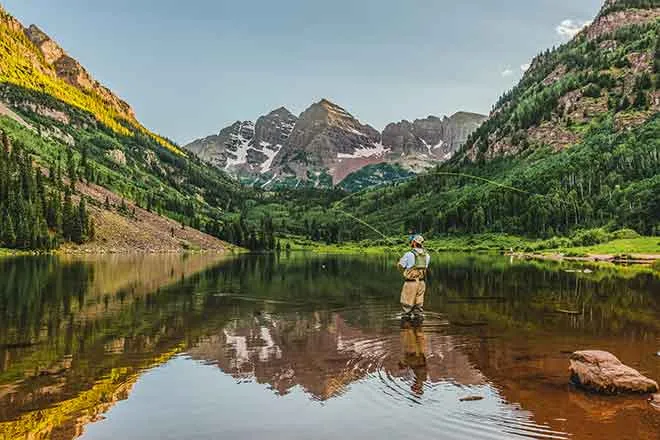
Colorado AG Weiser weighs challenge to Trump’s ‘energy emergency’
Colorado Attorney General Phil Weiser’s office will consider joining a lawsuit challenging President Donald Trump’s declaration in January of a national energy emergency, he told Newsline in an exclusive interview Saturday.
Last week, the Trump administration’s Bureau of Land Management invoked the emergency declaration to complete an accelerated environmental review of a permit to expand a loading facility near Price, Utah for oil coming out of the nearby Uinta Basin. The expansion could increase oil capacity on the main rail line through Colorado by up to 80,000 barrels a day.
It’s anticipated that the expansion of what’s known as the Wildcat Loadout facility — located on publicly owned federal lands — and other nearby facilities will allow the trucking and transfer to rail of up to 75% of the oil proposed for transport in the Uinta Basin Railway project. Eagle County and state officials have long opposed increased oil trains along the Colorado River.

In a June 27 letter to Jerry Davis, acting Utah state director for the BLM, Weiser wrote that an expedited environmental assessment for the proposed Wildcat right-of-way expansion would be a “violation of applicable laws and regulations” that would block proper public input and “subject Colorado communities to significant economic, environmental, and health and safety risks.”
Weiser argued there is no national energy emergency given the United States produced more oil last year than any nation in history, and he urged the BLM to follow standard, legally required procedures in reviewing the project. An attorney for Eagle County and an environmental group that successfully sued the federal government to delay the rail project, also sent letters.
But late Thursday, the BLM issued its approval, finding “no significant impact” related to the expansion, which Colorado opposes due to increased derailment, wildfire and oil-spill risks, and the agency directly cited its authority under Trump’s January executive order declaring a national energy emergency, allowing for the fast-tracking of fossil fuel projects.
Saturday, before a fundraiser here for his 2026 gubernatorial campaign, Weiser said he had not heard about the expedited approval of the Wildcat Loadout or had time to debrief the ruling.
“I am sorry to hear that. I’m not shocked, but it’s a sign of the times we’re in — the lack of stewardship to protect our land, air, and water is appalling,” Weiser said. “We’re going to have to be creative to find every way we can to make sure that these decisions aren’t being made hastily with long-term, harmful consequences.”

U.S. President Donald Trump. FlickrCC - Gage Skidmore
In May, 15 states — led by the attorneys general in Washington and California — filed a lawsuit challenging the legality of Trump’s energy emergency executive order. Calling it a “fake” emergency designed to line the pockets of Big Oil, Washington Attorney General Nick Brown pointed to the order’s exclusion of clean energy projects as it strips away vital environmental protections.
The May lawsuit claims Trump’s declaration of a national energy emergency is a violation of the National Emergencies Act itself, which is designed to prevent frivolous or partisan declarations.
“We don’t think it is a real emergency,” Weiser said Saturday. “Up until now, this national energy emergency order hasn’t affected Colorado. But given these dynamics (of the expedited BLM approval), we’re going to be looking at that to make sure that we can do all we can to protect Colorado.”
Brown and California Attorney General Rob Bonta cited what they deemed illegal fast-tracking of environmental reviews by the U.S. Army Corps of Engineers and the Advisory Council on Historic Preservation in violation of the Clean Water Act and the Endangered Species Act, among other key environmental laws.
“The only ‘emergency’ is that the president disagrees with policies to address climate change in Washington state and elsewhere,” Brown wrote in May. “He is illegally using emergency authorities to keep the nation reliant on energy sources like coal, oil and gas.”
Weiser has previously said he will keep all of his options open in opposing the Uinta Basin oil expansion as it seeks to vastly expand oil-train traffic along the headwaters of the endangered Colorado River, which supplies water to more than 40 million people. The BLM approval in a two-week window now has him questioning Trump’s national energy emergency rules.
“So we didn’t have an ability to make this case [back in May], but we at the time said that we would be looking closely at whether and when it would affect Colorado and we’d be ready to file,” Weiser said Saturday. “And with this, now we have to look at it.”
















